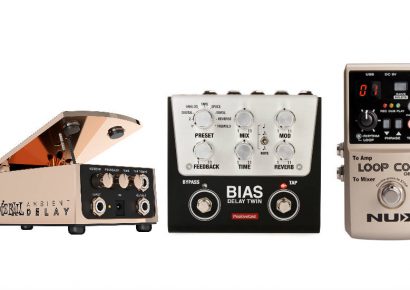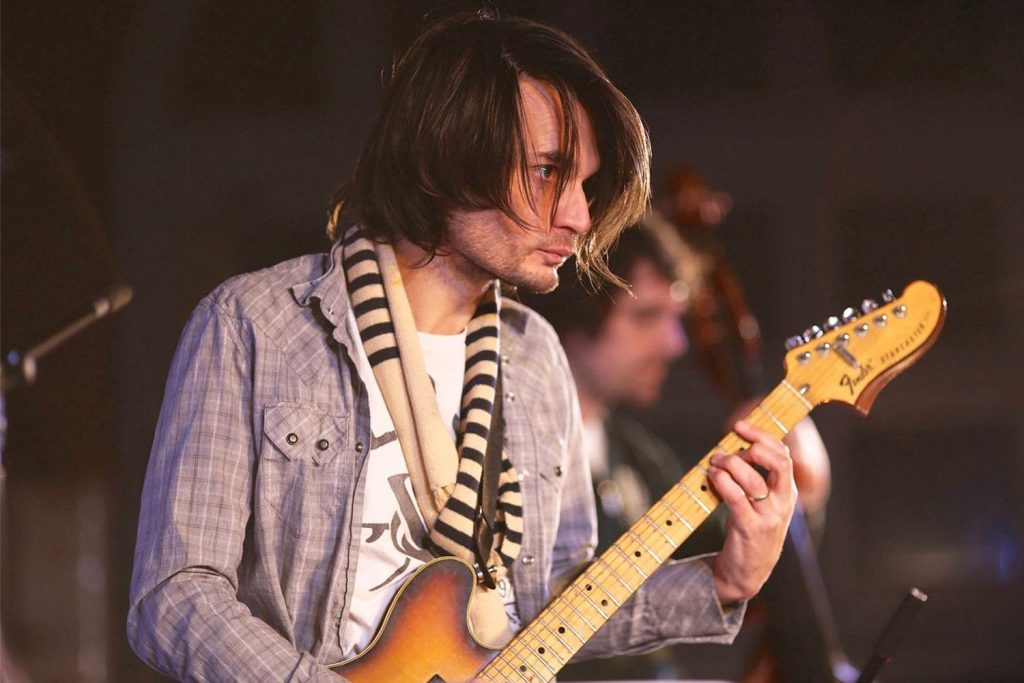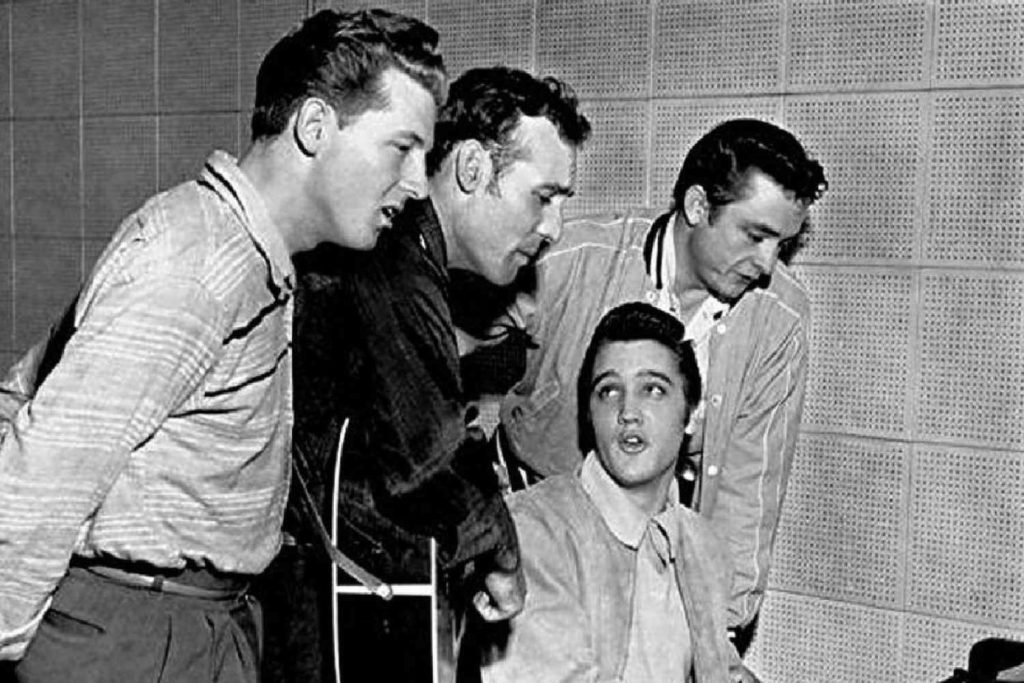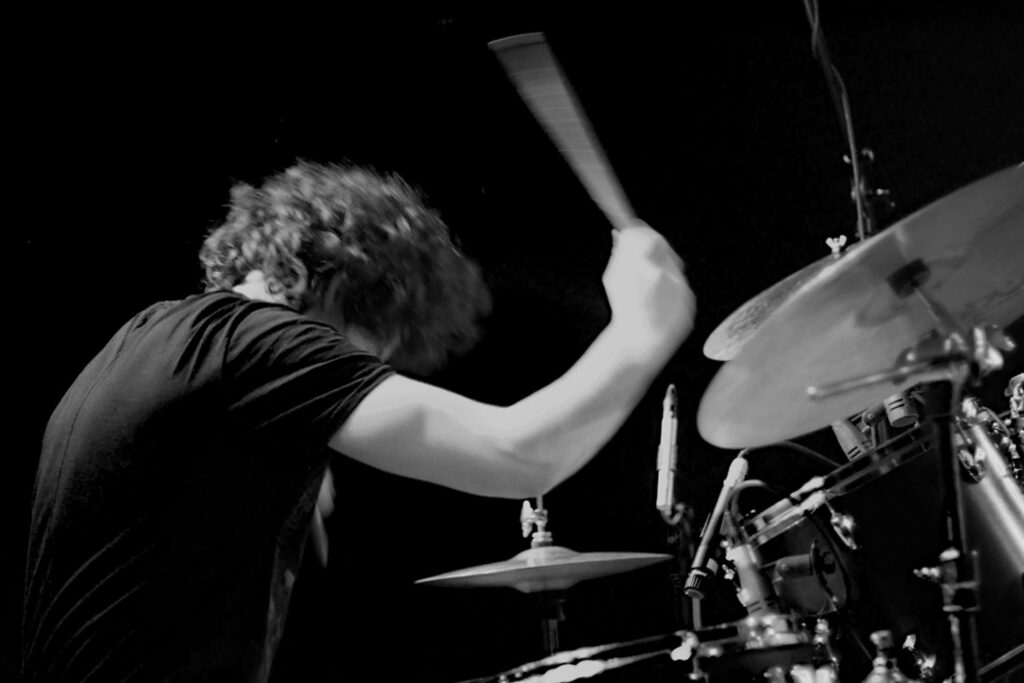Queen – A Night at the Opera

Hearing ‘Bohemian Rhapsody’ on the radio for the first time as a young man did for me what it has done for scores of other people – it shattered any perceptions I had about the linearity of songwriting and song structure. It was the first time I had heard a synthesis of several very different genres within an operatic rock format. It would serve as a life-long reminder that music is and always should be completely malleable, limited only by one’s own imagination.
It would take a few years before I would hear the rest of the album in its entirety, and when I did, it was the 1930s vaudevillian/ragtime feel displayed on ‘Seaside Rendezvous’ and ‘Lazing in a Sunday Afternoon’ that sparked inspiration and opened up another new musical world for me. I wouldn’t have had access to that sound outside of historical or period films and satirical moments in modern entertainment. There’s a very specific sort of joy that comes to me when I listen to those songs and that joy went a long way in inspiring the music of album opener ‘Blueberry’.
Bee Gees – Their Greatest Hits: The Record

After we had committed to the new melodic direction, I began to listen to ‘classics’ radio stations in the hope of being reintroduced to some moments of melodic epiphany that I might have experienced as a younger man and forgotten about over the course of the intervening years, thinking that I’d be able to unravel those moments with some clarity, as a more experienced musician. In a painfully cliche scene, I was nearly reduced to tears on the way home from work after listening to a few minutes of the Bee Gees ‘How Deep Is Your Love’ – say what you will, but that is a timeless and life-altering piece of music – and was thus compelled to properly study their catalogue because there had to be more to learn from them.
Most people are aware of The Bee Gees, but it seems to me they are seldom seen for the master craftsmen they were and are. It bewilders me how they managed to master both the well-postured saccharine tendencies of the ballad and the nuanced swagger of their disco/funk mode. The perfect marriage of rhythm and melody in both their vocal and musical departments was a constant beacon of inspiration that helped to break many moments of impasse for me during the writing of Rue.
The 1975 – I Like It When You Sleep, for You Are So Beautiful Yet So Unaware of It

This is one of the few contemporary albums that has provided inspiration for Rue, despite it seeming as though the 1975 hadn’t drawn much of their influence from contemporary music on the album.
It was the first record in a long time that I found myself craving both alone and in the company of others. The simultaneously conversational and political nature of the record’s lyrical content bolstered by Matty’s [Healy, vocalist] knack for finding timeless vocal melodies has kept me in awe from the record’s release up until it fills my ears as I write this. ‘If I Believe You’ is a favourite – I highly recommend it to any other incorrigible sentimentalists out there.
Queen – A Day at the Races

I knew there had to be two Queen albums on this list, but was torn between A Day at the Races and Sheer Heart Attack for the second choice. ’Bring Back The Leroy Brown’ and ‘Killer Queen’ (from the latter) are quintessential Queen tracks for me, but ‘Millionaire Waltz’ had a big effect on Rue and ‘Somebody To Love’ stands as my favourite song of Queen’s entire catalogue.
I only got to know this album properly in recent years. The relationship between the piano and lead guitar on this record held big epiphanies for me, which is reflected in my own writing. The instrumental and vocal layering on A Day at the Races is a little more sensible than its predecessor, making it marginally easier for me to dissect and understand. The less theatrical, rockier stuff on this one didn’t stay with me for as long as the aforementioned cuts and ‘Good-Old Fashioned Lover Boy’, but those were particularly high rotators on my Rue inspiration playlist.
Elvis Presley – If I Can Dream: With the Royal Philharmonic Orchestra

Our producer Shane Edwards made a point of playing this for us in its entirety while we were setting up for the first Rue session. All four of us were blown away by the other-worldly orchestral arrangement and it went a long way in inspiring us with Rue’s general layering and orchestration in particular. At the 1970 Jaycee Awards, Elvis said, “Without a song the day would never end; without a song a man ain’t got a friend; without a song the road would never bend, without a song. So I keep singing a song.” We payed homage to the King and his words very directly in the first verse of ‘Furrow’. This album never ceases to inspire me and I couldn’t recommend it highly enough to anybody in need of a smile.
Rue is out now.







